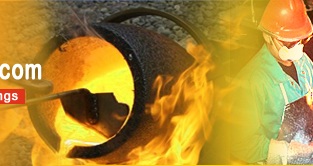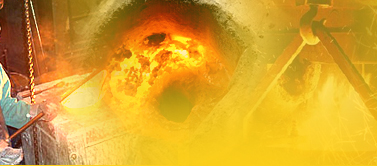Introduction: Rubber Plaster Molding (RPM), also known as plaster mold casting, is an appropriate substitute for investment casting, sand casting and prototype die casting. This proc

ess is suitable for both prototype and short run production quantities of aluminum and zinc parts. Rubber plaster molding is proffered to other casting for its speed and the superior quality that is achieved in the castings. Due to the fragility of the mold, only non ferrous metals like aluminum, zinc casting alloys and some copper based alloys can be cast by this technique.
Process: In rubber plaster mold, first a master pattern is made into which rubber silicon aggregate is poured to produce the negative pattern. Mold aggregate is made of a mixture of rubber silicon or plaster and additives, which is poured around the pattern. When the plaster set with the pattern it is placed in the a oven to be baked. After the mold solidifies the pattern can be drawn into a single line through the undercut.
Rubber plaster molds are usually made in two parts. The mold halves are clamped together by inserting cores and molten metal is poured into the mold. This is an in expendable process where the casting is removed from the mold by cutting the gates and sprues and breaking the mold.

Sprue, runner systems and gates produced in the rubber tooling will enable the entry of molten metal into the mold. Cores which are also made from plaster are used to give the undercuts for the casting, these things are placed before the mold is closed for casting.
Applications of Rubber Plaster Molds:
Rubber plaster molds process is particularly suitable for castings with extremely thin sections. This process is suitable for both prototype and short run production quantities of aluminum and zinc parts. Castings for telecommunications, business machines, medical equipment, computers, automotive, aerospace, electronics and robotics etc are cast with accuracy and excellent surface finish.
Advantages of Rubber Plaster Molds:
- Smoother surface and better dimensional accuracy than sand castings
- Metal shrinkage can be controlled better in plaster molds
- Distortion of castings is less than with the Precision Sand process
- Parts can be consistently produced to close tolerances, which greatly reduces and often
- Minimal machining and other finishing operations required


